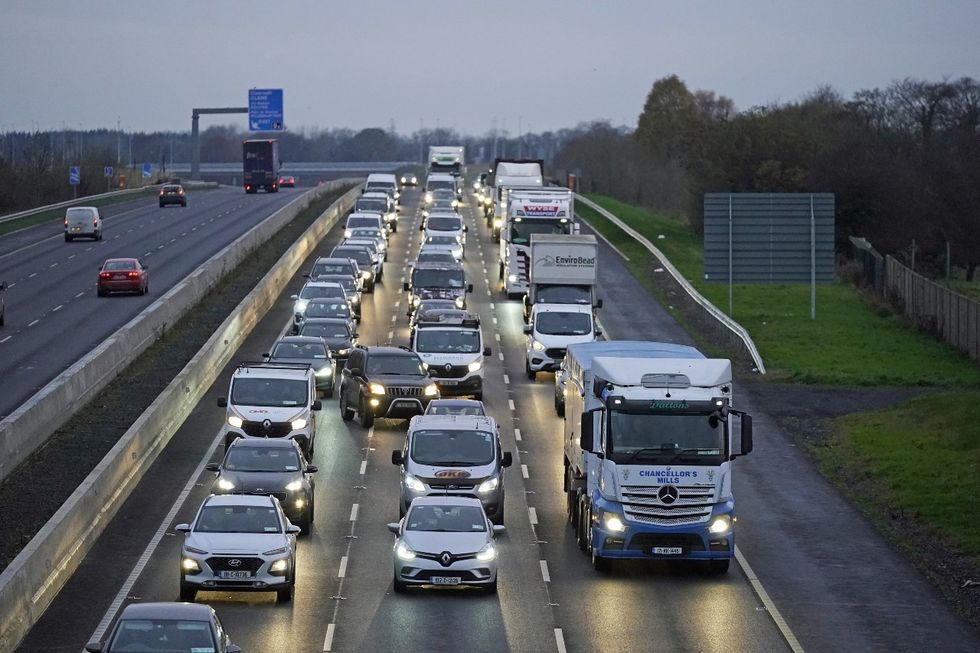Car tax changes needed to prevent UK from becoming 'haven' for polluting SUVs, says thinktank
Experts suggested that major car tax changes could help slash emissions
Don't Miss
Most Read
Trending on GB News
The UK is using its tax system "ineffectively" to address emissions from SUV cars making it a “haven” resort compared with neighbouring European countries.
According to reports from The European Federation for Transport and Environment (T&E), compared with other European countries, the UK is allowing larger cars to over-pollute without any real repercussions.
As a result of the poor tax system, T&E UK is calling on the Government to increase the rate of first-year Vehicle Excise Duty paid on the purchase of the most polluting cars.
It also wants to introduce a new weight-based element to first-year VED targeted at the heaviest new cars and wants the Government to provide certainty about long term plans for benefit-in-kind systems beyond 2027/28.
Do you have a story you'd like to share? Get in touch by emailingmotoring@gbnews.uk

T&E UK is calling on the Government to increase first-year VED rates
PA/GETTY
The figures from the transport group's tax guide found several discrepancies in the amount of tax paid in the UK between battery electric SUVs and petrol SUVs.
Out of the 31 European countries included in the data, the UK ranks 24th for its crackdown on SUV pollution which the organisation claims is due to the low vehicle excise duty which penalises high-polluting cars.
The average acquisition tax for a BMW X5 in the UK is £1,565, while in France, the same tax would amount to €60,000 (£51,415).
The result of the UK not taxing more polluting cars enough is shown in new 2023 registration data.
Cars which output CO2 emissions of between 160g/km and 199g/km represented 9.3 per cent of all new private registrations, while cars with over 200g/km represented a further 6.1 per cent of new registrations.
Compared to France, for example, vehicles in the same emissions category represented only 0.7 per cent of new car registrations.
Ralph Palmer, UK electric vehicle and fleets officer at T&E, said: “The UK Government is missing out on an equitable and easily actionable source of revenue by not targeting wealthy buyers of oversized, over-polluting SUVs.
"The result is that the UK risks becoming a tax haven for larger and more polluting cars, despite the harm they cause to the environment and other road users.
“Bringing the UK’s taxes on larger, luxury, more polluting cars more in line with other European countries will help make green alternatives more appealing to new car buyers.”
The organisation explained that the UK could be using its tax system to discourage the growth of new SUV sales, which have jumped by 23 per cent between 2022 and 2023.
Company car drivers in the UK are benefiting from a progressive tax system, T&E stated.
Otherwise known as the Benefit-in-Kind system, it pushes companies towards using battery electric vehicles as its default with low tax rates.
LATEST DEVELOPMENTS:

T&E stated that the UK could be using its tax system to discourage the growth of SUV sales
PA
This has led to corporate BEV registrations to soar from 1.6 per cent in 2019 to 22.5 per cent in 2023 with company car registrations now shifting to electric vehicle sales in the UK.
T&E said that by levying higher taxes on the most polluting and heaviest new cars it would not only be an equitable source of revenue by targeting wealthier car buyers, but would widen the tax gap between battery electric and petrol cars, making the former a more attractive option.









